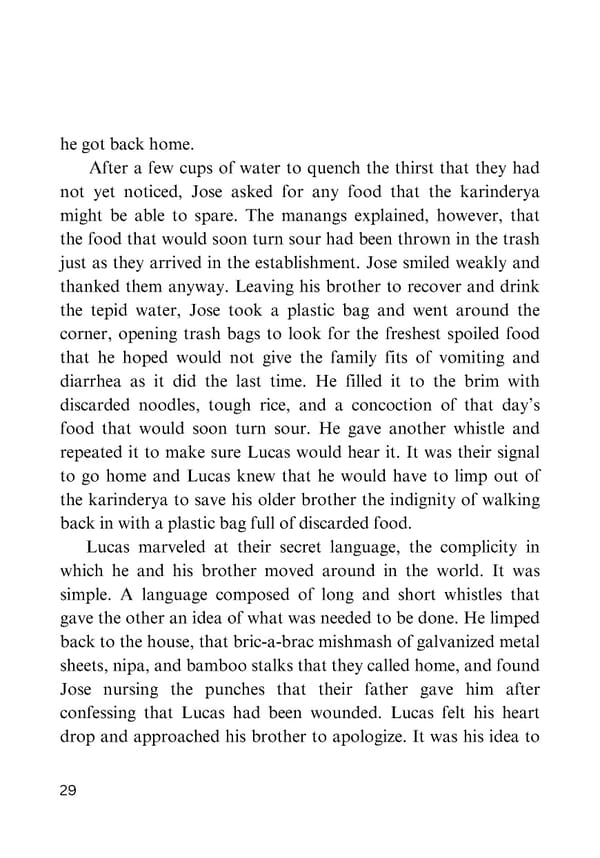he got back home. After a few cups of water to quench the thirst that they had not yet noticed, Jose asked for any food that the karinderya might be able to spare. The manangs explained, however, that the food that would soon turn sour had been thrown in the trash just as they arrived in the establishment. Jose smiled weakly and thanked them anyway. Leaving his brother to recover and drink the tepid water, Jose took a plastic bag and went around the corner, opening trash bags to look for the freshest spoiled food that he hoped would not give the family fits of vomiting and diarrhea as it did the last time. He filled it to the brim with discarded noodles, tough rice, and a concoction of that day’s food that would soon turn sour. He gave another whistle and repeated it to make sure Lucas would hear it. It was their signal to go home and Lucas knew that he would have to limp out of the karinderya to save his older brother the indignity of walking back in with a plastic bag full of discarded food. Lucas marveled at their secret language, the complicity in which he and his brother moved around in the world. It was simple. A language composed of long and short whistles that gave the other an idea of what was needed to be done. He limped back to the house, that bric-a-brac mishmash of galvanized metal sheets, nipa, and bamboo stalks that they called home, and found Jose nursing the punches that their father gave him after confessing that Lucas had been wounded. Lucas felt his heart drop and approached his brother to apologize. It was his idea to go 29
 The Manila Magnolia Vol. 2 Issue 1 Page 29 Page 31
The Manila Magnolia Vol. 2 Issue 1 Page 29 Page 31